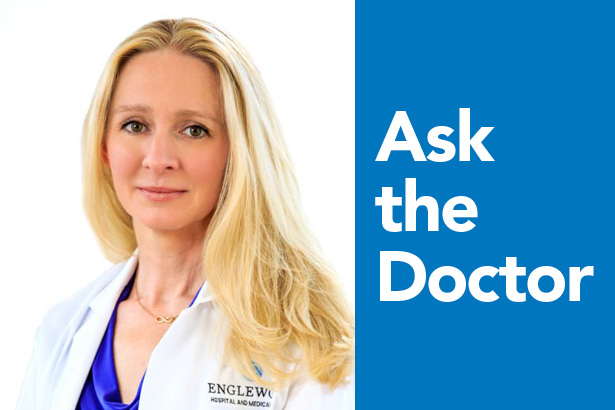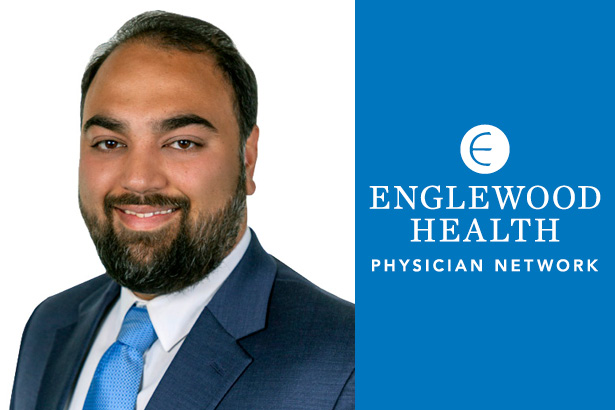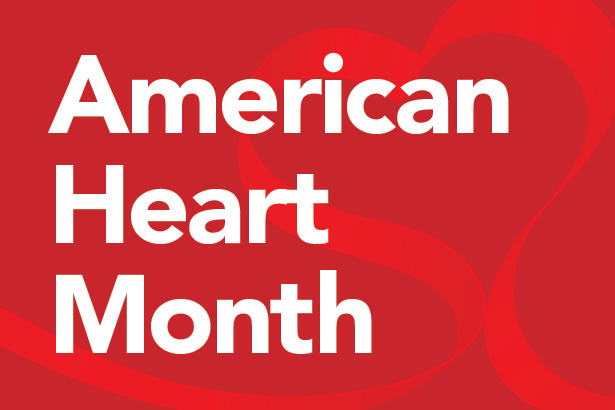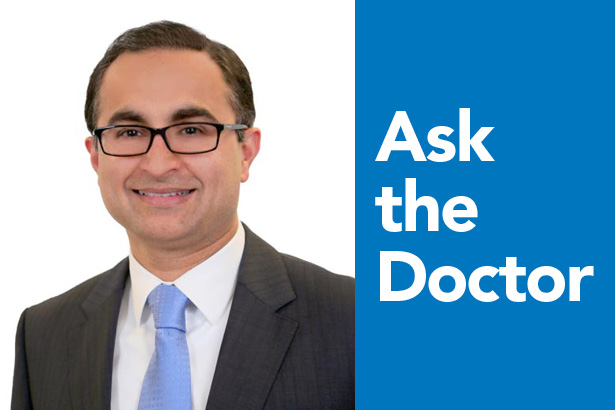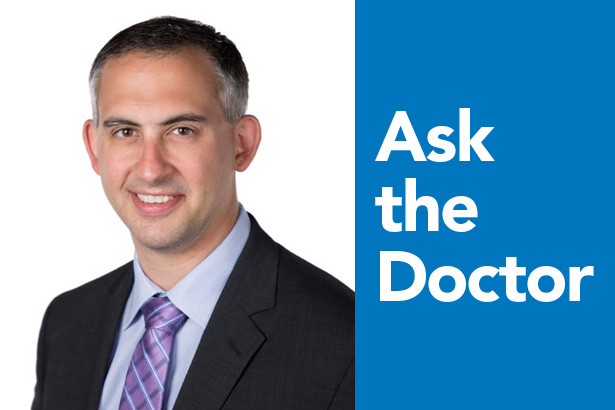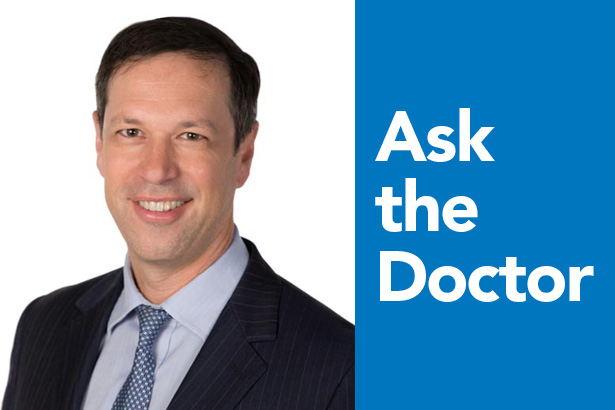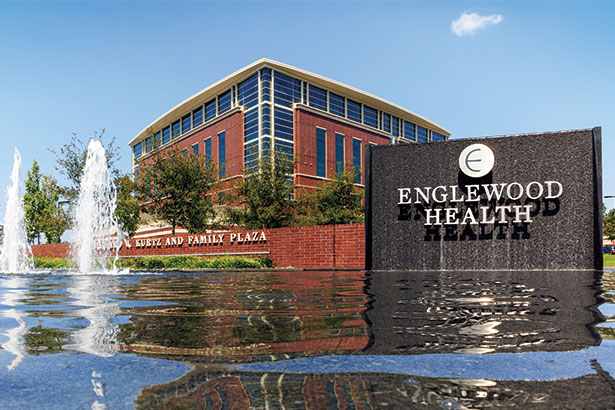Palliative Medicine and Hospice Specialist Vinnidhy Dave, DO, Appointed Director of Palliative Medicine at Englewood Health Physician Network
March 11, 2019 – Palliative medicine and hospice specialist Vinnidhy Dave, DO, has been appointed director of palliative medicine at Englewood Health Physician Network. Dr. Dave joins Englewood Health from the Hospital for Special Surgery in New York, where he was director of medical pain management and a clinical instructor at Weill Cornell Medical College. He completed both clinical and research fellowships in hospice and palliative medicine at Memorial Sloan Kettering Cancer Center.
Dr. Dave’s particular clinical interests include cancer pain management, pain management in patients with multiple medical conditions not eligible for interventional treatment, symptom management for oncology patients, and advanced care planning.
“As a palliative medicine specialist, I focus on individualizing care for my patients to improve their symptoms and quality of life while they undergo treatment for their disease,” says Dr. Dave. “With my cancer patients, I focus on helping them to manage pain, nausea, loss of appetite, and other often disabling symptoms. I view each patient as a human being, not as a diagnosis; I believe this is important for the patient–physician relationship and leads to the best clinical results.”
“I am honored to join the Englewood Health Physician Network,” he adds, “where I will collaborate with oncologists and other specialists throughout the network, to provide coordinated care for our patients through close communication and a shared electronic medical record.”
Dr. Dave is board certified in hospice and palliative medicine and in internal medicine. He received his DO from New York College of Osteopathic Medicine and did his internal medicine residency at the University of Medicine and Dentistry of New Jersey.
“We are very excited to welcome Dr. Dave to our team of renowned specialists and providers. Dr. Dave’s expertise in palliative medicine will help meet an important need in our community,” said Dr. Stephen Brunnquell, president of the Englewood Health Physician Network. “As our network continues to grow, we remain focused on ensuring that our patients have access to leading care right here, in their own backyard.”
A member of the American Academy of Hospice and Palliative Medicine and the American Pain Society, Dr. Dave is the co-author of several scientific publications on pain management and palliative care and has presented his research at national medical society meetings.
Englewood Hospital Named One of America’s 50 Best for Vascular Surgery
February 20, 2019 – Englewood Hospital is the only New Jersey hospital to be named one of America’s 50 Best Hospitals for vascular surgery by Healthgrades® and receive the Healthgrades 2019 Vascular Surgery Excellence AwardTM.
The achievements are part of findings released in the Healthgrades 2019 Report to the Nation. The new report demonstrates how clinical performance differs dramatically among hospitals nationally, regionally and locally, and the impact that this variation has on health outcomes.
During the 2015-2017 study period, Healthgrades found that:
- Patients treated at hospitals receiving the America’s 50 Best Hospitals for Vascular Surgery award have, on average, a 40 percent lower risk of experiencing a complication while in the hospital than if they were treated in hospitals that did not receive the award
- Patients treated at hospitals which did not receive the America’s 50 Best Hospitals for Vascular Surgery were, on average, 1.67 times more likely to experience one or more complications in the hospital than if they were treated at hospitals that did receive the award*
“Being named one of America’s 50 Best Hospitals for vascular surgery is a strong testament to our long history as a leader in vascular surgery and our ongoing efforts to bring the safest, highest-quality, and most technologically advanced care to our community,” said Warren Geller, president and CEO of Englewood Health. “We thank our doctors, nurses, and other staff for their tireless efforts to make us who we are and congratulate them on this recognition of excellence by Healthgrades.”
Englewood Health has established itself as a leading center for vascular and endovascular treatment through surgical and non-surgical techniques, state-of-the-art diagnostics, and an ongoing commitment to patient care, research, and training. Most recently, Englewood became one of the first hospitals in New Jersey to offer a new, minimally invasive procedure to treat severe carotid artery disease. The procedure, called transcarotid artery revascularization (TCAR), is unique in that blood flow is temporarily reversed during the procedure so that any small bits of plaque that may break off in the artery are diverted away from the brain, which helps prevent a stroke. A stent is then placed inside the artery to stabilize the plaque, minimizing the risk of a future stroke.
“Hospitals that have achieved the Healthgrades America’s 50 Best Hospitals for vascular surgery have proven their dedication to quality care and exceptional outcomes,” said Brad Bowman, MD, chief medical officer at Healthgrades. “Consumers should consider hospital quality when navigating their care journeys, and this recognition distinguishes Englewood Hospital in the marketplace.”
Englewood Hospital was also recognized for the following clinical achievements:
- Five-star recipient for hip fracture treatment in 2019
- Five-star recipient for carotid surgery in 2019
- Five-star recipient for gallbladder removal surgery in 2019
- Five-star recipient for appendectomy for 3 years in a row (2017-2019)
* Statistics are based on Healthgrades analysis of MedPAR data for years 2015 through 2017 and represent 3-year estimates for Medicare patients only.
Englewood Health Recognizes American Heart Month
February 15, 2019 — In recognition of American Heart Month Englewood Health is participating in the American Heart Association’s Little Hats Big Hearts program to send more healthy babies and moms home by raising awareness and advocating for change.
Throughout the month of February, new moms at Englewood Hospital are beginning their parenthood journeys with support and information including tips on raising a healthy family, at-home exercise ideas, and heart-healthy recipes. Their babies are receiving red caps, handmade by volunteers from across New Jersey, for safeguarding through the cold winter months.
Each year in the United States 36,000 children are born with a heart defect, increasing their risk of developing medical conditions such as pulmonary hypertension, infective endocarditis, congestive heart failure, anticoagulation, and arrhythmias. With the right care, however, most defects are possible to fix. Englewood Health is proud to play a part in helping new parents better care for themselves and their newborns.
The New Jersey Little Hats Big Hearts initiative is sponsored locally by Novartis.
Ask the Doctor: Dr. Asad Cheema
What is the most common heart rhythm disorder?
Dr. Cheema: Atrial fibrillation (AFib) is the most common heart rhythm disorder in the United States, affecting close to 10 percent of people over 65, according to the Centers for Disease Control. Other common disorders are atrial flutter, tachycardia (fast beats), bradycardia (slow beats) and premature ventricular contractions.What is a cardiac electrophysiologist?
Dr. Cheema: Cardiac electrophysiologists are specialists in heart rhythm disorders. As “electricians” of the heart, we specialize in the complex electrical system that controls the heartbeat and pumping of the heart.What is your approach to treating patients?
Dr. Cheema: My philosophy has always been to lay out all the options for patients and let them ask all the questions they need to, so they can make an informed decision.Are there new technologies to treat atrial fibrillation?
Dr. Cheema: Yes. Procedures that used to take eight to 10 hours now take an hour to an hour and a half. For example, catheter ablation (a minimally invasive procedure that uses either radiofrequency energy or very low temperatures to “ablate,” or destroy, the problematic electrical pathway) is now done on an outpatient basis. 3D mapping for ablation procedures now enables us to pinpoint the exaction location of the arrhythmia. This reduces the time the procedure takes, avoiding excess radiation exposure and increasing patient safety. The Heart and Vascular Institute at Englewood Health now offers the FDA-approved Watchman™ left atrial appendage (LAA) closure device. Closing off the LAA (a small pouch off the left atrium) can greatly reduce the risk of stroke from atrial fibrillation. For many patients, it is considered safer than blood thinners.Any words of wisdom for people with AFib?
Dr. Cheema: With atrial fibrillation, you used to just have to live with it. Now there are ways to fix it. You don’t have to compromise on quality of life. There are options for treating your heart rhythm disorder with excellent results. Posted February 2019Ask the Doctor: Dr. Ramin Hastings
What symptoms might someone with aortic stenosis experience that would prompt them to see a doctor?
Dr. Hastings: The most common symptoms I witness are shortness of breath, fatigue and an inability to exercise or conduct the daily activities you were once comfortable performing. Some patients also experience chest pain. The two most serious symptoms are losing consciousness or going into overt heart failure.How is aortic stenosis typically treated?
Dr. Hastings: The treatment of aortic stenosis is undergoing a rapid change as we speak. The traditional treatment has been open heart surgery to replace the blocked valve. Unfortunately, because this is a mechanical problem, there are no medications that can help. You have to manually replace the valve with a new one, often made of metal or material from a pig or cow heart. However, this has changed with the development of a procedure called transcatheter aortic valve replacement, or TAVR.What is TAVR?
Dr. Hastings: TAVR is an alternative to open heart surgery where we can replace the aortic valve through a minimally invasive technique, entering via a needle stick through the groin area. While TAVR has only been in commercial use for seven years, the design has advanced by leaps and bounds in that time and the pool of patients for whom this technique is appropriate continues to expand.Who is a good candidate for the TAVR procedure?
Dr. Hastings: Initially this procedure was used only for patients at high risk for complications from open heart surgery. However, we are now offering it to people who are at intermediate risk. Many ongoing studies are evaluating this treatment’s use on people who are low risk for complications. The results of those studies are going to be released over the next few months, and the pool of patients may expand even further.What are the benefits of TAVR compared to surgical valve replacement?
Dr. Hastings: The obvious benefit is that there is no need for open heart surgery or the use of a heart/lung machine. Recent studies have compared these two treatment options and discovered that a TAVR valve seem to be better than a surgical valve in terms of blood flow. There are also signs that the chances of having a stroke while undergoing a TAVR procedure may be less than during an open heart procedure. There are some downsides of TAVR that patients should discuss with their doctor. The main drawback is the fact that we don’t have long-term data to determine whether the valve is just as durable as a surgical valve. That data, however, is being collected and further advances will continue to drive the field. I cannot stress enough that with these new advances, no one should live with the symptoms of aortic stenosis because they are afraid of having open heart surgery. Posted February 2019Ask the Doctor: Dr. David Feigenblum
What options are there to protect someone with a weak heart?
Dr. Feigenblum: When abnormal electrical signals in the ventricles cause the heart to beat too rapidly (tachycardia) or just quiver (fibrillation), an implantable cardioverter defibrillator (ICD) can save a person’s life. Patients at risk typically have a weak heart muscle due to coronary artery disease, prior heart attack, or heart infection. Other risk factors include previous cardiac arrest and certain genetic factors. The internal device is implanted in the chest. When it detects a dangerously fast heartbeat, it delivers a small (or sometimes large) electrical shock to restore the normal heart rhythm.What’s involved in the implantation of a cardioverter defibrillator?
Dr. Feigenblum: ICDs are implanted through a minor surgical procedure at the hospital. Patients stay overnight and go home the next day. The device will continuously monitor the heart’s rhythm, detect abnormalities, and deliver treatment. Pacing therapy is painless, so patients generally don’t feel anything.Will an ICD help me live longer? Give me better quality of life?
Dr. Feigenblum: Essentially, patients have no restrictions after the initial recovery period. They often want to know if they can travel. The ICD allows them to go about their normal lives with the assurance that they are protected. If a patient experiences a cardiac event, the system can transmit the information from the defibrillator over a phone line. The medical team can then log in to a secure site and see what is going on without the patient having to come in to the hospital.What options are there beyond ICDs?
Dr. Feigenblum: At Englewood Health, we have a full-service and highly experienced electrophysiology team. In addition to pacemakers and ICDs, our team implants resynchronization devices in advanced heart failure patients, which can significantly improve quality of life. We also routinely perform procedures to treat atrial fibrillation and ventricular tachycardia, as well as a range of other cardiac tests and procedures. Posted February 2019What to Do If You Are Concerned About Someone’s Mental Health or Substance Use
Mental health and substance use are increasingly common and we all need some basic tools and skills to assess, support and protect people experiencing these disorders. A behavioral health crisis can take many forms—self-harm, panic attacks, suicidal ideation, overdose on drugs or alcohol—but no matter what kind of crisis someone might be going through, you can help.
Make sure to stay with your loved one while they’re at risk and do not hesitate to get them professional help. The most important thing you can communicate in a crisis is that you are concerned for your loved one’s well-being, and that they can lean on you for support. Use an empathetic, non-judgmental tone to encourage your loved one to talk about how they feel. Avoid minimizing their problems or giving advice as this may create distance between you and upset them further. Reassure them that whatever they’re experiencing is not their fault.
Remember that you are not a trained professional; if you feel out of your depth you may want to include other family members, your place of worship, community groups, or local crisis services for additional support. It’s important not to be afraid to ask directly if they are thinking about suicide. This question does not make someone become suicidal but it does help both of you determine what to do next. Allow your loved one to stay in control. Offer them choices on how you can help them. Reassure them that it’s okay to seek help, even if they think that they can cope without it. Usually your loved one will agree they need help; sometimes however, you may need to unilaterally make this decision if you decide it could be in their best interests and personal safety.
Help your loved one develop a crisis plan before a crisis happens. A crisis plan is a document that contains important information and outlines how to manage a crisis situation, such as:
- Phone numbers of mental health professions, family members and friends
- A list of current prescription medications, doses and diagnosis
- Any history of suicide attempts, psychosis, hospitalizations or drug use
- Triggers and coping mechanism that have helped in the past
People may need a crisis intervention and/or go to the hospital if they:
- Threaten or try to take their lives or hurt themselves or others
- See or hear things (hallucinations)
- Believe things that aren’t true (delusions)
- Have problems with alcohol or substances
- Have not eaten or slept for several days
- Are unable to care for themselves or their families, e.g., getting out of bed, bathing, dressing
- Need to make a significant switch in treatment or medication under the close supervision of a doctor
- Have any symptom of mania or depression that significantly interferes with life
Resources
Call 911 or go to the Emergency Department if it is a life-threatening emergency. Notify the 911 operator that it is a psychiatric emergency and ask for an officer trained in crisis intervention or trained to assist people experiencing a psychiatric emergency.
In a non-life-threatening emergency, Bergen County’s Designated Psychiatric Emergency Screening Program (201-262-HELP/4357) will connect you with a crisis specialist who can come to your home and provide mental health evaluations, crisis intervention counseling, and assessment for services. Open 24/7.
Englewood Hospital Inpatient Psychiatry (201-894-3142). Our inpatient unit is for adults requiring a brief admission for assessment, monitoring, and stabilization of symptoms.
NJ Mental Health Cares (866-202-HELP (4357) is New Jersey’s behavioral health information and referral service. Open Monday-Friday, 8 a.m. – 8 p.m.
IME Addiction Access Center (844-276-2777) can provide information about substance use services throughout NJ. Open 24/7.
Reach NJ (844-732-2465) helps people with Medicaid or who are uninsured find an appropriate inpatient facility. Open 24/7.
National Suicide Prevention Lifeline (800-273-TALK/8255) has trained crisis counselors to speak with 24/7.
Crisis Text Line – Text NAMI to 741-741 to connect with a trained crisis counselor to receive crisis support via text message.
Mental Health and Substance Use: By The Numbers
There are an estimated 44.7 million adults (that’s 18.3% of all U.S. adults) with a mental illness; 10.4 million of these adults had a serious mental illness (that’s 4.2% of all U.S. adults) significantly impacting their daily life. In the past year, 20 million adults (8.4%) had a substance use disorder. Almost 8 million American adults battled both a mental health disorder and a substance use disorder (co-occurring disorders).
Information referenced from NAMI 2017, SAMHSA 2014, Depression & Bipolar Support Alliance website.
Englewood Health Announces New Trustee Appointments
February 6, 2019 — Several local community leaders have been named to the Boards of Trustees of the Englewood Healthcare System, Englewood Hospital, and its fundraising organization, the Englewood Health Foundation. Joining the healthcare system’s board are Gregg Lobel, MD and Steven Rudnitsky; joining the hospital’s board is Jonathan Lefcourt; and joining the Foundation’s board are Susan Marenoff-Zausner, Matt Wasserlauf, and Alexandra Gottdiener, MD.
“These appointments come at a time of growth and expansion for the organization,” said Thomas C. Senter, chairman of the Board of Trustees of Englewood Health. “Our trustees play a crucial role in strengthening the healthcare system and helping advance its mission as we set and meet even higher standards of care in the years to come.”
“We recognize the value that each of our new Board members will bring to the table. They will be key players in building upon Englewood Health’s community impact,”said Jay C. Nadel, chairman of the Board of Trustees of the Englewood Health Foundation.
“We’re excited to add new talent to our governing boards, whose vision and unique perspectives will help us move our mission forward,” said Warren Geller, president and CEO of Englewood Health. “Their insight and guidance allows us to build upon our medical excellence and innovate further to benefit the communities we serve.”
Englewood Healthcare System
Gregg Lobel, MD is chief of anesthesiology at Englewood Health, specializing in pediatric anesthesia. He is a past president of the medical staff at Englewood Health, treasurer of the New Jersey State Society of Anesthesiologists, and serves on the Committee on Patient Blood Management of the American Society of Anesthesiologists, for which he is a delegate. He is also a member of the Society for Pediatric Anesthesia, American Academy of Pediatrics, International Anesthesia Research Society, Medical Society of New Jersey, and the Society for the Advancement of Blood Management. Dr. Lobel earned his MD at Mount Sinai School of Medicine and completed postgraduate training at Maine Medical Center, Mount Sinai Medical Center, and Children’s Memorial Hospital. He is currently an assistant clinical professor of anesthesiology at the Icahn School of Medicine at Mount Sinai. Dr. Lobel is the co-author of numerous articles that have appeared in peer-reviewed publications, and has contributed chapters to several books. He has volunteered on close to a dozen international medical missions with Healing the Children, a local nonprofit providing access to medical care and services for children in need throughout the state and worldwide. Dr. Lobel is also a member of the Englewood Hospital Board of Trustees.
Steven Rudnitsky, a corporate president and CEO since 1999, has been recognized for his management capabilities and leadership roles in publicly traded companies, as well as working in private equity environments, growing and stabilizing new businesses, turning around distressed businesses and driving shareholder value. He has served some of the country’s most widely known brands, from iconic consumer packaged-goods companies including Johnson & Johnson, Pepsi Co, Pillsbury,Kraft Foods, and Nabisco, to leading hospitality companies including Cendant Corporation, Wyndham Worldwide, Dolce Hotels & Resorts, Miraval Group and Hyatt Hotels Corporation. Among his key accomplishments, Rudnitsky initiated and facilitated the sale of Dolce Hotels & Resorts to Wyndham Worldwide and Miraval Group to Hyatt Hotels Corporation. Rudnitsky earned his MBA from Farleigh Dickinson University and his BBA from Temple University. He was appointed to the Englewood Hospital Board of Trustees in 2014.
Englewood Hospital
Jonathan Lefcourt is the president and CEO of Alliance Shippers Inc., a global provider of logistics services, headquartered in Englewood Cliffs. Lefcourt got his start in the logistics industry over 34 years ago with his family-owned transportation and shipping businesses. His responsibilities included customer relations, inventory management, supply chain warehousing, and consolidation. Prior to his appointment, Lefcourt served as vice president of information technology for Alliance Shippers Inc. His oversight of new systems and technologies spurred company growth and he was integral in instituting significant company-wide efficiencies. Lefcourt graduated summa cum laude from Fairleigh Dickinson University with a Bachelor of Science in Accounting.
Englewood Health Foundation
Alexandra Gottdiener, MD has been the chief of medicine at Englewood Health since 2009. Prior to that appointment she was the program director for the internal medicine residency program, and has been a member of the Department of Medicine faculty since 2001. Dr. Gottdiener established the patient safety and quality improvement curriculum at Englewood Health and continues to lead the patient safety curriculum as well as mentor residents in quality improvement projects. In addition, Dr. Gottdiener has chaired and served on numerous medical staff quality and patient safety committees for Englewood Health. She received her MD from the University of Illinois-Chicago and completed her internal medicine residency training at NYU/Bellevue in New York City, where she was also a chief resident. Dr. Gottdiener is a fellow in the American College of Physicians, and a member of the Society of Hospital Medicine and the American Association for Physician Leadership. She is an alumna of the 2013 Quality and Safety Educators Academy of SHM and is a faculty mentor in QI for that organization.
Susan Marenoff-Zausner serves as president of the Intrepid Museum, an organization she joined as chief marketing officer in 2004, after which she became executive vice president of business development and, shortly thereafter, executive director. Earlier in her career, Marenoff-Zausner spent eight years with Madison Square Garden, culminating with the title of vice president of client services. She was recruited by the Women’s World Cup in 1998 to be the Giants Stadium venue director for the 1999 championship games, and briefly served as external marketing director of the U.S. Women’s Tennis Association. From 2000 to 2003 she was general manager of the New York Power, which was a professional women’s soccer team. Marenoff-Zausner serves as a member of the board of directors at the Kaplen JCC on the Palisades.
Matt Wasserlauf is founder and chief executive officer of Torrential, Inc., a company connecting brand advertisers with desired audiences by selling and distributing premium video advertising formats. He is the author of Start-Up SOLD (2012), the story of how he started, built and sold Broadband Enterprises (BBE), the first online video network. Wasserlauf founded BBE in 2004, serving as chief executive officer. In 2009, he was a finalist for the Ernst & Young Entrepreneur of The Year Award in the New York metropolitan region. Previously, he was vice president of The Feed Room and an account executive for Warner Brothers. Wasserlauf also serves on the board of the TD Foundation, a 100-percent volunteer organization that aids wounded warriors and their families in need. It has shipped school supplies, medical supplies, vitamins, and donated clothes and toys, and has funded more than 30 life-saving surgeries for severe burns, orthopedic reconstructions, and heart repairs.
Minimum Wage at Englewood Health Increases to $15/hour
February 1, 2019 – Englewood Health, the health system comprising Englewood Hospital and the Englewood Health Physician Network, has increased its minimum wage to $15/hour. The increase will be effective for eligible employees by the end of 2019.
“We are delighted to offer this significant increase to many of our valuable employees,” said Warren Geller, president and CEO of Englewood Health. “The decision to increase our minimum wage is a reflection of the important work that our front line and support staff do for our patients and community everyday and our commitment to being an employer of choice.”
This move comes five years earlier than the implementation of the New Jersey state law mandating a $15 minimum wage.
Englewood Health is the largest employer in the city of Englewood and a major driver of the economic health of the city.

